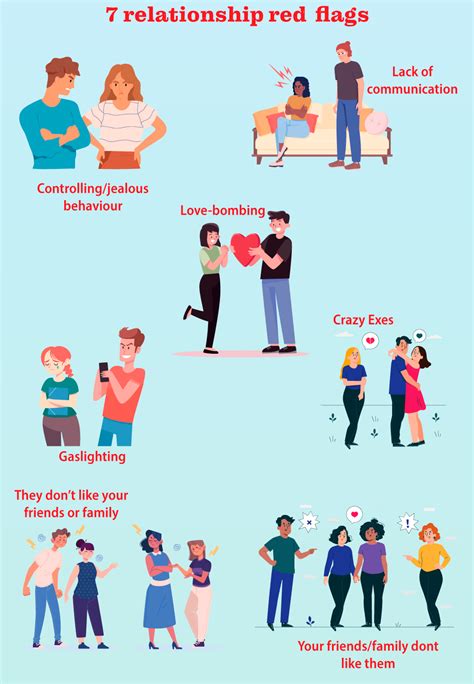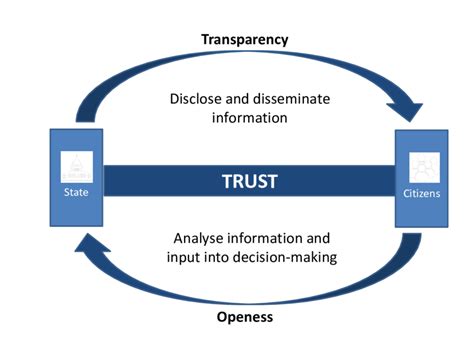
Navigating the complexities of modern dating requires discerning the line between romantic gestures and potential warning signs. As highlighted in a recent online discussion, certain behaviors, initially perceived as affectionate, may indicate underlying issues and unhealthy relationship patterns. From excessive flattery to controlling tendencies disguised as protectiveness, identifying these “red flags” early on is crucial for fostering healthy and sustainable relationships.
Online forums are buzzing with personal anecdotes detailing relationship experiences where seemingly romantic gestures morphed into controlling or manipulative behaviors. This has sparked a widespread conversation about recognizing early warning signs and setting healthy boundaries. The shared experiences aim to empower individuals to make informed decisions and prioritize their well-being in romantic pursuits.
The discourse, fueled by shared stories on social media, points to 19 specific behaviors that should raise concerns:
-
Love Bombing: Overwhelming a partner with affection, gifts, and attention early in the relationship to manipulate and gain control.
-
Excessive Flattery: Constant and insincere compliments used to create dependence and manipulate self-esteem.
-
Isolation from Friends and Family: Gradually separating a partner from their support network to increase control and dependence.
-
Jealousy and Possessiveness: Unwarranted suspicion and attempts to control a partner’s interactions with others.
-
Constant Need for Validation: Requiring constant reassurance and attention, often leading to emotional exhaustion for the partner.
-
Controlling Behavior: Attempts to dictate a partner’s actions, choices, and appearance.
-
Gaslighting: Manipulating a partner into questioning their sanity and perception of reality.
-
Blame Shifting: Avoiding responsibility for one’s actions by blaming others, including the partner.
-
Inconsistent Behavior: Alternating between affection and criticism, creating confusion and anxiety.
-
Lack of Empathy: Difficulty understanding or sharing the feelings of others.
-
Disrespect for Boundaries: Ignoring or violating personal boundaries and limits.
-
Unrealistic Expectations: Demanding perfection and placing unreasonable expectations on the partner.
-
Poor Communication: Difficulty expressing oneself clearly and honestly, leading to misunderstandings and conflict.
-
History of Unstable Relationships: A pattern of short-lived or tumultuous relationships in the past.
-
Difficulty Accepting Criticism: Reacting defensively or aggressively to any form of feedback.
-
Substance Abuse: Using drugs or alcohol to cope with emotions or control behavior.
-
Financial Control: Controlling a partner’s access to money or making financial decisions without their input.
-
Threats and Intimidation: Using threats, either explicit or implicit, to control or manipulate a partner.
-
Rapid Escalation: Pushing for a serious commitment or major life changes too quickly in the relationship.
Deeper Dive into Red Flags and Their Implications
Understanding each of these red flags requires a more nuanced approach. What might initially appear as an act of love or devotion could, upon closer examination, reveal underlying patterns of manipulation and control.
-
Love Bombing: The Illusion of Instant Connection: Love bombing is a manipulative tactic where someone showers you with excessive attention, affection, gifts, and promises early in a relationship. It creates an intense, whirlwind romance designed to quickly establish a strong bond and make the recipient feel deeply indebted. “It’s like they’re trying to create a fantasy world where you’re the center of their universe,” explains relationship expert Dr. Sarah Miller. The problem? This behavior is often a facade masking insecurity and a desire for control. Once the target is “hooked,” the love bomber may begin to withdraw affection and exhibit controlling behaviors.
-
Excessive Flattery: The Mirror Reflecting Idealization: While compliments are generally positive, excessive and insincere flattery can be a red flag. This type of flattery often lacks substance and is aimed at manipulating the recipient’s self-esteem. The flatterer might exaggerate positive qualities or create a false sense of perfection, making the recipient feel reliant on their validation. “They’re building you up so they can later tear you down,” warns relationship coach Mark Johnson. This tactic can erode self-confidence and make the individual more susceptible to manipulation.
-
Isolation from Friends and Family: Cutting Off Support Systems: Isolating a partner from their friends and family is a classic sign of controlling behavior. This tactic weakens the individual’s support network, making them more dependent on the abuser. The abuser might criticize friends and family, create conflicts, or make excuses to prevent the partner from seeing them. Over time, the victim may become increasingly isolated and vulnerable.
-
Jealousy and Possessiveness: The Green-Eyed Monster Unleashed: Jealousy and possessiveness are often disguised as love and concern, but they are actually rooted in insecurity and a desire for control. An overly jealous partner might constantly check their partner’s phone, question their whereabouts, or accuse them of infidelity. They may also try to control who their partner interacts with and where they go. This behavior can be emotionally exhausting and suffocating, creating a climate of fear and distrust.
-
Constant Need for Validation: The Emotional Vampire: A partner who constantly seeks validation can be emotionally draining. They may require constant reassurance, attention, and praise, often putting their emotional needs above their partner’s. This can create an imbalance in the relationship and lead to resentment. While everyone needs validation from time to time, a constant need for it can be a sign of insecurity and emotional immaturity.
-
Controlling Behavior: The Puppet Master: Controlling behavior can manifest in many ways, from dictating what a partner wears to monitoring their finances. It involves an attempt to exert power and control over another person’s life. This behavior is often subtle at first, but it can escalate over time, leading to emotional abuse and even physical violence.
-
Gaslighting: The Assault on Reality: Gaslighting is a form of psychological manipulation in which the abuser tries to make the victim question their sanity and perception of reality. This can involve denying events that happened, distorting facts, or accusing the victim of being crazy. Gaslighting can be incredibly damaging, as it erodes the victim’s self-confidence and ability to trust their own judgment.
-
Blame Shifting: The Responsibility Evader: A partner who constantly blames others for their mistakes or problems is likely avoiding responsibility. This behavior can be incredibly frustrating, as it prevents the couple from addressing issues and moving forward. Blame shifters often lack empathy and are unwilling to take ownership of their actions.
-
Inconsistent Behavior: The Rollercoaster of Emotions: Inconsistent behavior, such as alternating between affection and criticism, can create confusion and anxiety. This pattern can leave the victim feeling constantly on edge, unsure of what to expect from their partner. It can also be a form of manipulation, designed to keep the victim off balance and dependent on the abuser’s approval.
-
Lack of Empathy: The Emotional Void: Empathy is the ability to understand and share the feelings of others. A partner who lacks empathy may be unable to connect with their partner on an emotional level or provide support during difficult times. This can lead to feelings of isolation and loneliness.
-
Disrespect for Boundaries: The Boundary Breaker: Boundaries are essential for healthy relationships. A partner who disrespects boundaries may ignore requests, violate personal space, or pressure their partner to do things they are not comfortable with. This behavior is a sign of disrespect and a lack of consideration for the partner’s needs and feelings.
-
Unrealistic Expectations: The Impossible Standard: Demanding perfection and placing unreasonable expectations on a partner can be incredibly damaging. This behavior sets the stage for constant disappointment and criticism. It also creates an environment of pressure and stress.
-
Poor Communication: The Bridge Collapsed: Communication is the foundation of any healthy relationship. A partner who struggles to communicate effectively may have difficulty expressing their needs and feelings, leading to misunderstandings and conflict. Poor communication can also be a sign of emotional unavailability.
-
History of Unstable Relationships: The Pattern of Failure: While past relationships don’t always predict future behavior, a pattern of short-lived or tumultuous relationships can be a red flag. It may indicate underlying issues with commitment, communication, or emotional stability.
-
Difficulty Accepting Criticism: The Fragile Ego: Reacting defensively or aggressively to criticism can be a sign of insecurity and a lack of self-awareness. A partner who cannot accept feedback is unlikely to grow or change in the relationship.
-
Substance Abuse: The Intoxicating Problem: Substance abuse can have a devastating impact on relationships. It can lead to erratic behavior, financial problems, and emotional and physical abuse. If a partner is struggling with substance abuse, it is important to seek professional help.
-
Financial Control: The Purse String Manipulator: Controlling a partner’s access to money or making financial decisions without their input is a form of abuse. It can leave the victim feeling powerless and dependent on the abuser.
-
Threats and Intimidation: The Fear Monger: Using threats, either explicit or implicit, to control or manipulate a partner is a serious form of abuse. It creates a climate of fear and can lead to physical violence.
-
Rapid Escalation: The Fast Track to Disaster: Pushing for a serious commitment or major life changes too quickly in a relationship can be a red flag. It may indicate a desire for control or an attempt to rush the relationship before the other person has a chance to fully assess the situation.
Expert Opinions and Psychological Insights
Psychologists and relationship experts emphasize the importance of self-awareness and setting healthy boundaries. Dr. Lillian Glass, a communication and psychology expert, notes that “Recognizing these behaviors early on is crucial for protecting yourself from emotional harm.” She advises individuals to trust their instincts and seek professional help if they are unsure about a situation.
Furthermore, understanding the underlying motivations behind these behaviors is essential. Many of these red flags stem from insecurity, a need for control, or past trauma. While understanding these motivations doesn’t excuse the behavior, it can help individuals make informed decisions about whether to continue the relationship and how to protect themselves.
Setting Boundaries and Seeking Help
If you recognize any of these red flags in your relationship, it’s crucial to take action. Setting boundaries is the first step. Clearly communicate your expectations and limits to your partner. Be assertive and consistent in enforcing these boundaries. If your partner refuses to respect your boundaries or becomes abusive, it may be necessary to end the relationship.
Seeking professional help is also recommended. A therapist or counselor can provide guidance and support in navigating difficult relationship dynamics. They can also help you develop healthy coping mechanisms and strategies for setting boundaries.
Beyond Romantic Relationships: Red Flags in Other Contexts
While the article focuses on romantic relationships, the concept of red flags extends to other areas of life, including friendships, family relationships, and professional settings. In any relationship, it’s important to be aware of behaviors that could indicate manipulation, control, or abuse.
The Broader Societal Impact
The increased awareness of red flags in relationships reflects a broader societal shift towards prioritizing mental health and healthy relationships. By sharing their experiences and educating others, individuals are contributing to a culture of awareness and empowerment. This can help prevent future instances of abuse and promote healthier relationship dynamics.
The Importance of Self-Reflection
It’s also important to engage in self-reflection and examine your own behaviors. Are you exhibiting any of these red flags in your own relationships? Are you creating healthy boundaries and communicating effectively? Self-awareness is essential for fostering healthy relationships and avoiding perpetuating harmful patterns.
Conclusion: Empowering Individuals for Healthier Relationships
The discussion surrounding red flags in relationships is a valuable tool for empowering individuals to make informed decisions and prioritize their well-being. By recognizing these warning signs early on, setting healthy boundaries, and seeking professional help when needed, individuals can foster healthier and more fulfilling relationships. The key takeaway is to trust your instincts, prioritize your emotional safety, and remember that you deserve to be in a relationship that is based on respect, trust, and equality.
Frequently Asked Questions (FAQ)
1. What is “love bombing” and how can I identify it?
Love bombing is a manipulative tactic characterized by an overwhelming display of affection, gifts, and attention early in a relationship. It’s designed to create a strong bond quickly and make the recipient feel indebted. You can identify it by the intensity and speed of the affection, promises of a future together made very early on, and the feeling that it’s too good to be true. Pay attention to whether the affection is genuine or feels performative and whether it’s accompanied by controlling behaviors later on.
2. How do I set healthy boundaries in a relationship, and what should I do if my partner disrespects them?
Setting healthy boundaries involves clearly communicating your limits, needs, and expectations to your partner. Be specific and assertive in your communication. For example, “I need some time alone each day to recharge,” or “I’m not comfortable discussing my past relationships.” If your partner disrespects your boundaries by ignoring your requests, pressuring you, or making you feel guilty for setting them, it’s a serious red flag. It indicates a lack of respect for your autonomy and needs. If the behavior persists, you may need to re-evaluate the relationship and consider ending it to protect your well-being.
3. What are some subtle signs of controlling behavior that I might overlook?
Subtle signs of controlling behavior can be disguised as concern or protectiveness. These can include:
- Constantly checking in on your whereabouts.
- Expressing disapproval of your friends or family.
- Making decisions for you without your input.
- Criticizing your appearance or choices.
- Isolating you from your support network.
- Monitoring your social media activity.
- Making sarcastic or belittling comments.
- Controlling finances or access to resources. If you notice a pattern of these behaviors, it’s important to address them with your partner and seek professional help if needed.
4. What should I do if I suspect I’m being gaslighted in a relationship?
If you suspect you’re being gaslighted, it’s crucial to validate your own experiences and seek external support. Gaslighting involves manipulating you into questioning your sanity and perception of reality. Keep a journal to document events and conversations to help you remember what actually happened. Talk to trusted friends, family members, or a therapist about your concerns. Their objective perspective can help you determine whether you’re being gaslighted. If you are, it’s important to prioritize your mental health and consider ending the relationship. Gaslighting is a form of emotional abuse and can have long-lasting psychological effects.
5. How can I tell the difference between genuine concern and possessiveness in a relationship?
Genuine concern stems from a desire for your well-being and happiness. It’s expressed in a supportive and respectful manner. Possessiveness, on the other hand, is rooted in insecurity and a desire for control. It often manifests as jealousy, suspicion, and attempts to limit your interactions with others. A genuinely concerned partner will trust you and respect your boundaries, while a possessive partner will try to control your actions and isolate you from your support network. If you feel suffocated or controlled by your partner’s behavior, it’s likely possessiveness rather than genuine concern. It’s also important to consider the context. Is their concern consistent and related to your well-being, or is it triggered by your interactions with specific people or situations?









